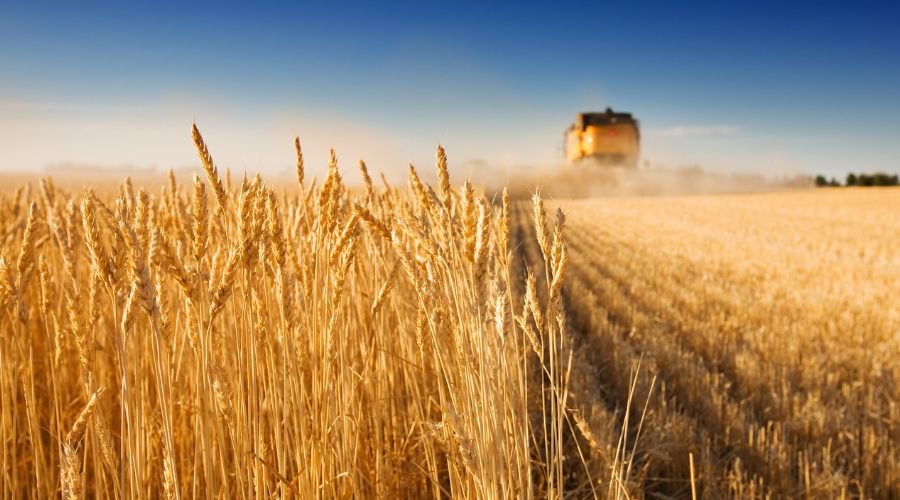Harvest 2024: Farmers count the cost of long wet winter
13th August 2024
Two farms share their experience of harvesting after record-breaking rainfall this year, with one moving from wheat to beans, and another putting a field into regen ag.

Waterlogged fields in spring resulted in the amount of wheat planted falling by a tenth, and two thirds of farmers say they have lost money due to the weather, according to an NFU survey.
The latest BBC Farming Today programme sees environmental correspondent Dave Harvey visiting two farms that were hit by floods this year.
Ground left cracked and dry
Mike Wilkins, who farms high on the Marlborough Downs, Wiltshire, tested his wheat in one field during the programme, but it was still too wet to cut and it soon began to rain again.
The farm took a beating in spring, with record rainfall leaving half the 200ha farm flooded, and young wheat crops lost.
While areas that were underwater are now dried out, the ground is cracked and bare, with nothing growing on it.
Two years ago, it was a barley field, but this year and next year, who knows, Mike said.
“Most of the flooded areas on the farm where we lost crops last year, we’ve tried to replant but some areas were just so waterlogged we haven’t been able to. It’s dried up now but it’s just bare ground with nothing growing on it, which is a shame.”
READ MORE: First 2024 harvest report: Good progress due to drier weather
READ MORE: Cambridgeshire farmer explains how his nature-friendly approach helps boost yields
It’s cost us twice
Most of the wheat area which was lost has been replanted with beans, which is considerably less lucrative.
“Financially they will make hundreds and hundreds of pounds less – this field is over 30ha so we’re talking thousands of pounds less profit.
“Also it’s cost us twice as much as we’ve already planted wheat here and lost all the money in the original wheat plant,” he commented.
Reflecting on what the next 10-20 years might hold, Mike added: “It’s always been a battle against the weather and it’s always adapting to the weather. We will get years where we get very helpful weather that will give us a good harvest and they have to roll us through the poorer years like this.
“We hope that we don’t get many years that are as catastrophic as this.”
Healing the soil
Debbie Wilkins’ farm, meanwhile, was underwater in January when the River Severn burst its banks in January, and remained so for six months.
One field, which was far too wet for planting maize to feed her cows as planned, was put to cover crops instead to help heal the soil.
“The soil needs things growing in it – that will make the soil and the microbes function better, so if we get a wet winter or a dry spring or a heatwave the soil can cope and still grow the crops I need,” she said.
Read more arable news.
